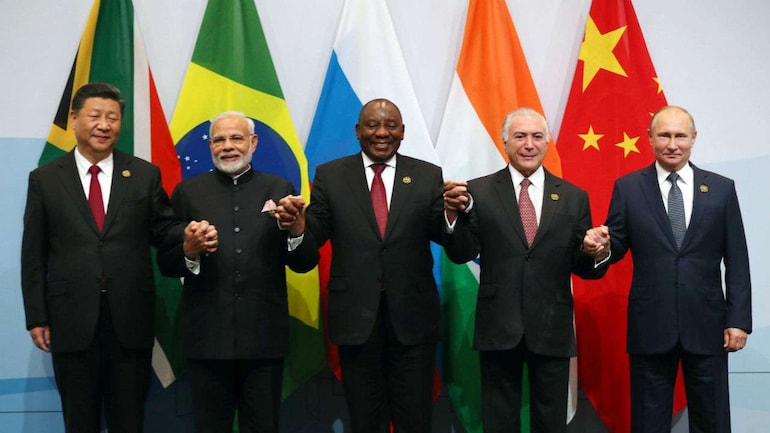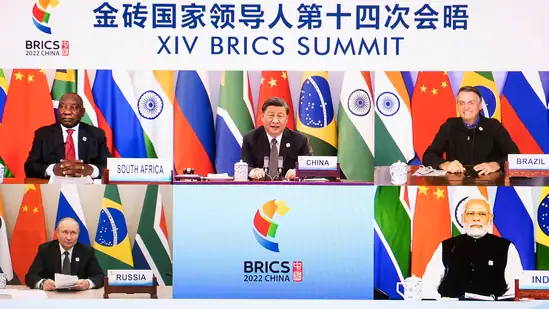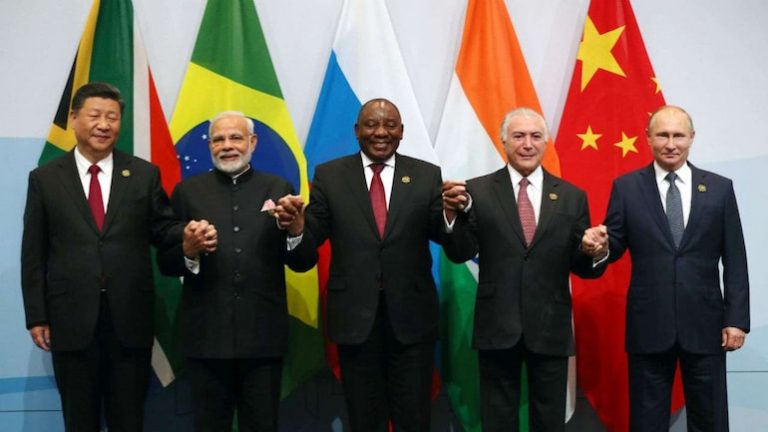
struggling with red hot inflation and energy prices skyrocketing higher. Politicians in the U.K., Europe, and the U.S. have been trying to blame the economic calamity on a number of things like the Ukraine-Russia war and Covid-19.
Data from last month’s consumer prices in America and Europe have climbed to all-time highs and many analysts say Western countries are in a recession or about to experience one. Meanwhile, at the end of June, members of the BRICS nations met at the 14th BRICS Summit to discuss world affairs.
During the BRICS Summit, Russian president Vladimir Putin announced that the five-member economies — Brazil, Russia, India, China, and South Africa plan to issue a “new global reserve currency.”
“The matter of creating the international reserve currency based on the basket of currencies of our countries is under review,” Putin said at the time. “We are ready to openly work with all fair partners,” he added. Additionally, Turkey, Egypt, and Saudi Arabia are considering joining the BRICS group. Analysts believe the BRICS move to create a reserve currency is an attempt to undermine the U.S. dollar and the IMF’s SDRs.

“This is a move to address the perceived U.S.-hegemony of the IMF,” the global head of markets at ING, Chris Turner, explained at the end of June. “It will allow BRICS to build their own sphere of influence and unit of currency within that sphere.”
While the news of a reserve currency created by BRICS may be a surprise to some, specific accounts about the member countries countering the U.S. dollar have been reported on for quite some time. At the end of May 2022, a Global Times report noted members were urged to end their dependence on the dollar’s global dominance.
Putin explained the following month that “Contacts between Russian business circles and the business community of the BRICS countries have intensified.” The Russian president further noted that Indian retail chain stores would be hosted in Russia, and Chinese cars and hardware would be imported regularly. Putin’s recent statements and commentary at the BRICS Summit have made people believe the BRICS members are not “just a ‘talk shop’ anymore.”
In addition to South Africa, Russia has also increased foreign aid and has delivered weapons to Sub-Saharan African countries. Furthermore, Putin and other BRICS leaders have been targeting U.S. hegemony and exceptionalism in specific statements published by the media.




